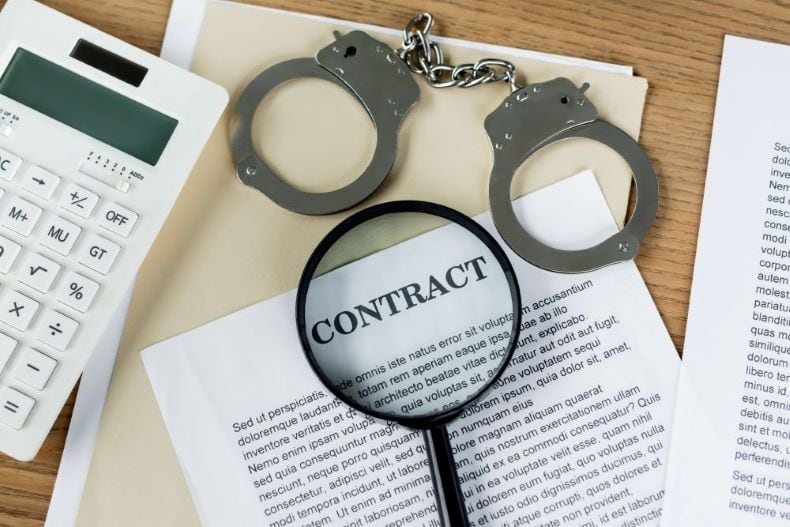
Living in a community governed by a Homeowners Association (HOA) offers many benefits, including shared amenities, neighborhood upkeep, and community events. However, disputes with your HOA can arise, especially when it comes to rule enforcement. One of the most contentious issues homeowners face is selective enforcement by their HOA. But can you sue your HOA for selective enforcement? What exactly does selective enforcement entail, and what are your rights as a homeowner? In this comprehensive guide, we’ll delve into these questions and provide you with the information you need to navigate this complex issue.
Understanding Selective Enforcement
Selective enforcement within an HOA occurs when the association enforces its rules and regulations inconsistently, targeting certain homeowners while overlooking similar violations committed by others. This can lead to feelings of frustration and resentment among residents who perceive preferential treatment or unfair targeting by the HOA board or management.
Selective enforcement occurs in various forms, such as:
Targeting Specific Rule Violations: The HOA may focus solely on enforcing certain rules while turning a blind eye to others, creating an imbalance in enforcement.
Giving Preferential Treatment: Certain homeowners or properties may receive leniency or exceptions from enforcement actions, leading to perceptions of favoritism.
Inconsistent Application of Rules: Rules may be applied differently to different residents, leading to confusion and resentment within the community.
Enforcing Unreasonable Restrictions: Some HOA rules may be deemed unenforceable or overly restrictive, leading to disputes over their implementation.
Your Rights as a Homeowner
As a homeowner within an HOA-governed community, you have rights and protections outlined in the association’s governing documents and state laws. Understanding these rights is crucial when addressing issues of selective enforcement. Here are some key rights to keep in mind:
Right to Fair Treatment: Homeowners have the right to expect fair and consistent treatment from their HOA regarding rule enforcement.
Access to Governing Documents: You have the right to access and review the HOA’s governing documents, including the CC&Rs (Covenants, Conditions, and Restrictions), which outline the rules and regulations governing the community.
Right to Challenge Enforcement Actions: If you believe your HOA is unfairly targeting you or selectively enforcing rules, you have the right to challenge such actions through the appropriate channels.
Legal Recourse: In cases of egregious selective enforcement or violation of your rights as a homeowner, you may have legal recourse, including the option to sue your HOA.
Can I Sue My HOA for Selective Enforcement?
Yes, you can potentially sue your HOA for selective enforcement if you can demonstrate that the association’s actions were discriminatory or arbitrary. However, the decision to pursue legal action should be carefully considered, as selective enforcement lawsuits can be complex and time-consuming. It’s advisable to consult with a licensed attorney experienced in HOA disputes to assess the strength of your case and explore your options before taking any further steps.
When Can You Sue Your HOA for Selective Enforcement?
Suing your HOA should be considered a last resort, but there are circumstances where legal action may be necessary to address issues of selective enforcement. Here are some scenarios in which you may have grounds to sue your HOA:
Discriminatory Practices: If you believe the HOA is targeting you based on discriminatory factors such as race, gender, or religion, you may have grounds for a lawsuit under fair housing laws.
Breach of Governing Documents: If the HOA is selectively enforcing rules in violation of its own governing documents, you may have a case for breach of contract.
Loss of Property Value: If selective enforcement negatively impacts your property value or ability to enjoy your home, you may be able to seek compensation through legal action.
Financial Mismanagement: Your monthly HOA contributions could be funding extravagant board lunches or excessive attorney’s fees. Legal action may be warranted to address such misuse of funds.
Disputes Over Remodeling: Despite vague CC&Rs, your HOA may resist your plans for home remodeling. Legal intervention might be necessary to assert your right to modify your property.
Delay in Repairs: Slow HOA response to essential repairs may necessitate legal measures or threats thereof to ensure timely maintenance of your property.
Persistent Harassment: If the HOA’s enforcement actions amount to harassment or intimidation, you may have grounds for a lawsuit based on emotional distress or harassment laws.
Steps to Take Before Suing Your HOA
Before resorting to legal action against your HOA, it’s essential to explore alternative avenues for resolving disputes and addressing issues of selective enforcement. Here are some steps you can take:
Review Governing Documents: Familiarize yourself with the HOA’s governing documents, including the CC&Rs and bylaws, to understand your rights and the rules governing the community.
Document Violations: Keep detailed records of any selective enforcement actions taken by the HOA, including dates, communications, and any evidence supporting your claims.
Communicate with the HOA: Attempt to resolve the issue directly with the HOA board or HOA management company through written communication or attending HOA meetings to voice your concerns.
Seek Mediation: Consider engaging a neutral third party, such as a mediator, to help facilitate discussions and find a resolution without resorting to litigation.
Consult with an Attorney: If efforts to resolve the issue amicably are unsuccessful, seek legal advice from a qualified attorney specializing in HOA disputes to explore your options and determine the best course of action.
How to Sue Your HOA for Selective Enforcement
If all attempts to resolve the issue outside of court have failed, and you’ve decided to pursue legal action against your HOA for selective enforcement, here’s what you need to know:
Hire an Attorney: Retain the services of a knowledgeable attorney experienced in HOA litigation to represent you throughout the legal process.
Gather Evidence: Compile all relevant evidence supporting your claims of selective enforcement, including documentation of violations, communications with the HOA, and any other pertinent information.
File a Lawsuit: Your attorney will help you prepare and file a lawsuit against the HOA in the appropriate court, outlining your grievances and seeking appropriate relief.
Attend Court Proceedings: Be prepared to participate in court proceedings, including hearings, depositions, and potentially mediation or settlement negotiations.
Follow Legal Procedures: Adhere to all legal procedures and deadlines outlined by the court, and cooperate fully with your attorney to present your case effectively.
Preventing Selective Enforcement in Your HOA
Preventing selective enforcement requires proactive measures from both homeowners and the HOA board. Here are some steps you can take to promote fair and consistent rule enforcement within your community:
Transparency: Ensure that HOA own rules and enforcement procedures are clearly communicated to all residents, and strive for transparency in all enforcement actions.
Consistency: Apply rules and regulations consistently to all homeowners, avoiding any appearance of preferential treatment or discrimination.
Training and Education: Provide training for HOA board members and management staff on fair housing laws, enforcement procedures, and conflict resolution techniques.
Open Dialogue: Foster open communication between homeowners and the HOA board, allowing residents to voice concerns and provide feedback on enforcement practices.
Review Governing Documents: Periodically review and update the HOA’s governing documents to ensure they reflect the needs and property values of the community while minimizing potential for selective enforcement.
How an Attorney Can Assist You with HOA Selective Enforcement Disputes
When faced with selective enforcement issues from your Homeowners Association (HOA), seeking legal assistance can be a vital step towards resolving the dispute effectively. An attorney specializing in HOA law can provide invaluable support, guiding you through the complexities of the legal process and advocating for your rights as a homeowner. Here’s how an attorney can assist you,
Legal Assessment: Attorneys specializing in HOA law offer deep knowledge of relevant regulations and case precedents, guiding you through the complex legal landscape.
Case Evaluation: Your attorney will assess the strength of your selective enforcement claim, examining evidence and governing documents to determine its viability.
Cost-Benefit Analysis: Conducting a thorough analysis, your attorney helps you understand the potential risks and benefits of pursuing legal action, empowering you to make informed decisions.
Strategy Development: Crafting a tailored plan, your attorney will outline steps such as evidence gathering, negotiation, or formal legal proceedings to address the issue effectively.
Negotiation: Skilled in advocacy, your attorney can represent your interests during negotiations with the HOA, aiming for a fair and amicable resolution.
Legal Representation: Should negotiations fail, your attorney will provide strong representation in court or administrative proceedings, advocating for your rights and interests.
Documentation and Filing: Your attorney ensures all necessary paperwork is accurately prepared and filed on time, minimizing procedural errors that could hinder your case.
Protecting Your Rights: Throughout the process, your attorney safeguards your rights as a homeowner, ensuring fair treatment under the law.
Litigation: If negotiations fail to resolve the dispute, your attorney can represent you in court proceedings. They will prepare your case for trial, present evidence, cross-examine witnesses, and argue on your behalf before the court.

Unleash Your Legal Power with BLG: Let’s Fight for Your Home
Selective enforcement by HOAs can be a source of frustration and conflict for homeowners. However, understanding your rights and legal options is crucial for addressing this issue effectively. Whether through open dialogue with your HOA board, alternative dispute resolution methods, or, in some cases, legal action, homeowners have avenues for challenging selective enforcement and advocating for fair treatment. By staying informed and proactive, you can protect your rights and ensure a harmonious living environment within your community.
Ready to take action against your HOA? Don’t go it alone, partner with BLG, where your rights as a homeowner are our top priority. Whether you’re facing disputes, negligence, or breaches of contract, our experienced attorneys are here to guide you every step of the way. Let’s protect your home and community together.
Contact us today for a free consultation.




